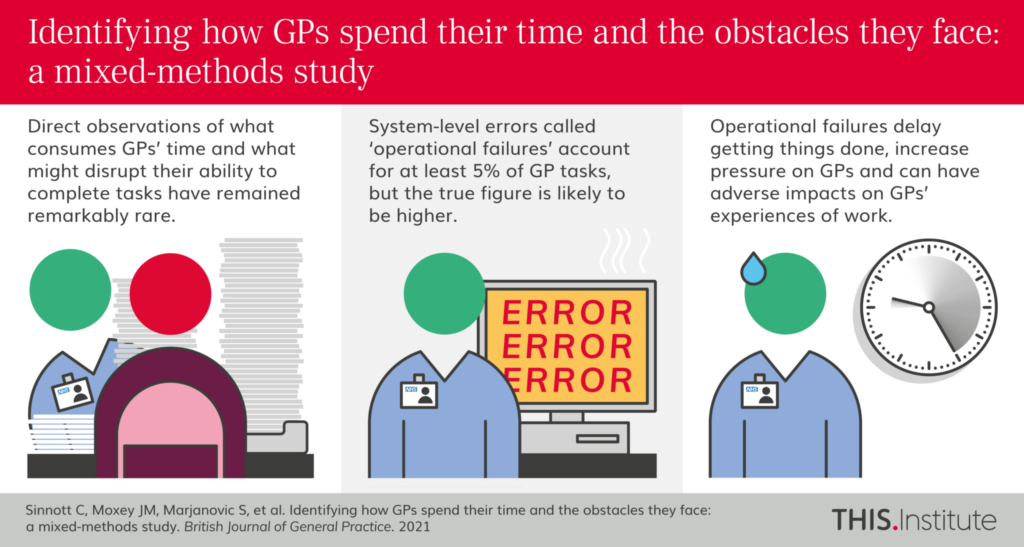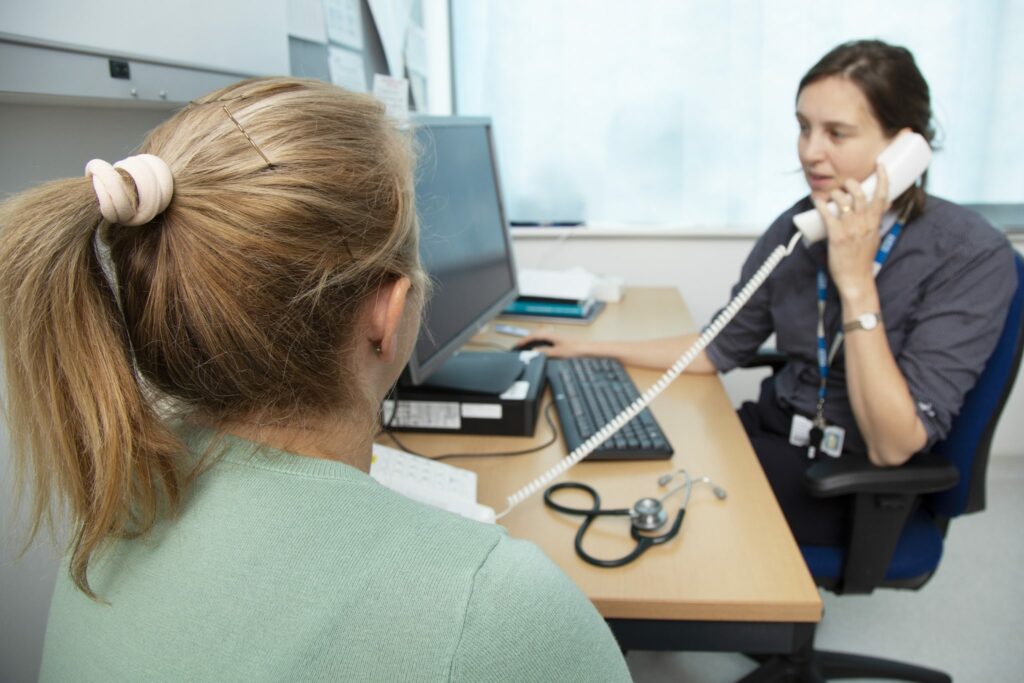Sinnott C, Moxey JM, Marjanovic S, et al. What GPs do and what gets in their way: a mixed-methods study. British Journal of General Practice. 2021
Identifying how GPs spend their time and the obstacles they face: a mixed methods study
Whether it’s looking for a missing piece of equipment, dealing with a frustratingly slow computer, or trying to work out what medication to prescribe to a patient whose discharge letter hasn’t arrived from the hospital, GPs face many challenges in going about their work.
Everyday problems in the working environment – often known as ‘operational failures’ – are very common. They can have very negative effects on GPs’ ability to deliver effective patient care, and on their experiences of work.
Why it matters
General practice is facing a workforce crisis, with GPs reporting unmanageable workloads and high levels of burnout. So far, very few studies have attempted to observe operational failures in real time. Observing GPs at work can provide important new insights into how common these problems are and which could be targets for improvement.
Our approach
Working with 61 GPs at 28 general practices across the East of England, we observed 238 hours of live consultations with patients, recording a total of 7679 GP tasks. We recorded what kinds of operational failures occur and how often using structured methods, and we made more general observations about the nature of problems and their impacts. We interviewed 51 GPs after the observations.
What we found
- GPs were regularly disrupted at work by operational failures and interruptions.
- Common problems included interruptions by other staff, broken equipment and missing supplies, and problems in the distribution and allocation of work across the practice team.
- Some of the most significant challenges arose in coordinating the input of multiple services into a patient’s care, as GPs acted as the nexus of a complex network of people and systems – but were faced with frequent problems of missing information, unclear or frustrating processes, and issues in getting hold of or arranging care. GPs reported that many disruptions are occur or have to be dealt with outside formal clinic hours.
- These problems delayed the completion of tasks, caused additional work, led to increased pressure and were very negative for GPs’ experiences of working life.
- Structured observations suggested that operational failures account for 5% of GP tasks during clinical sessions, but other observations and interviews showed that the true impact is likely to be much higher.
- These findings suggest that targeting operational failures in primary care, including those that relate to the GP’s role in coordinating care across multiple systems and boundaries, may have an important role in improving GPs’ and patients’ experiences of care and in enhancing efficiency.
At a glance











